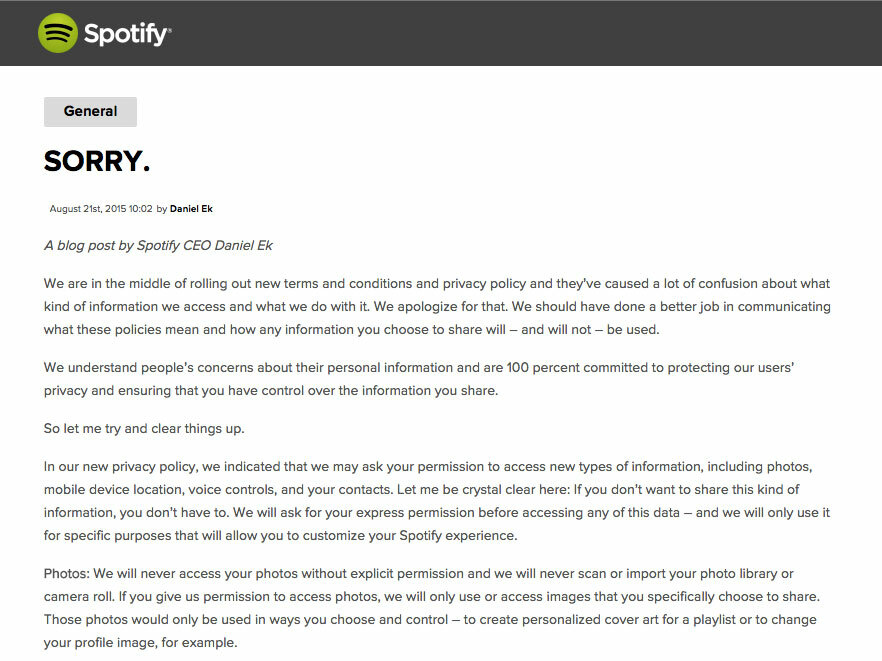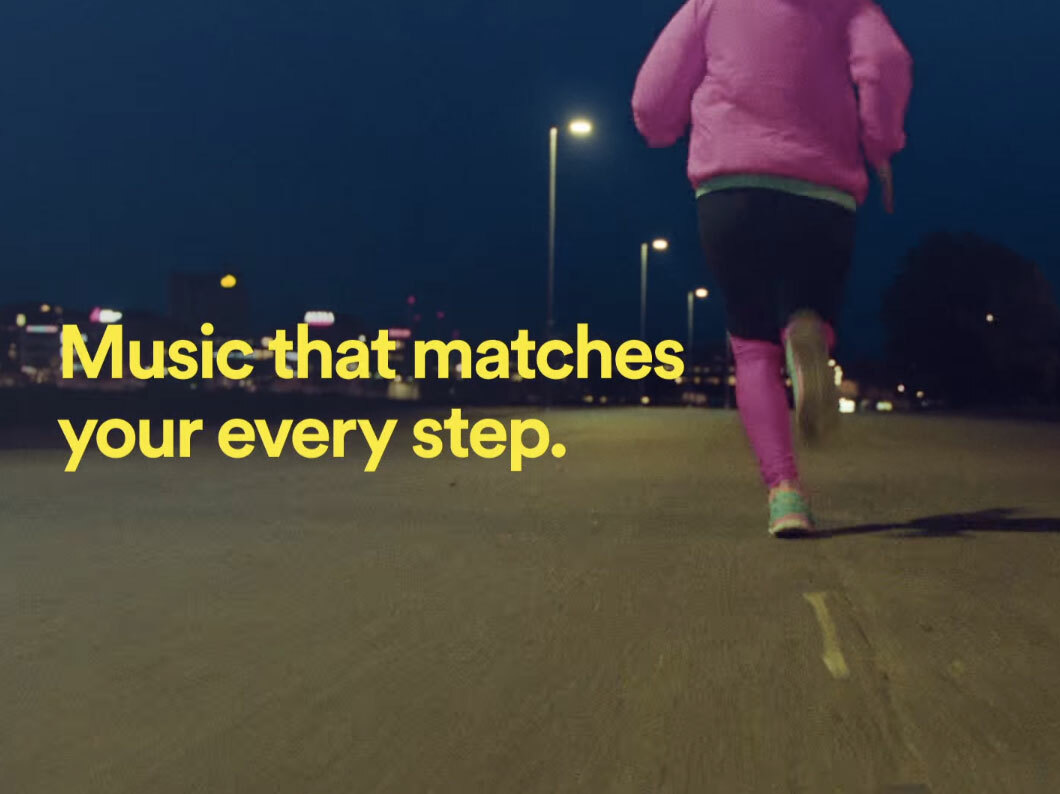Spotify wants all of your data, but then so does everyone else
Privacy's important and tech giants should do better, but blind outrage isn't the answer

The internet exploded on 20th August with the news Spotify was about to gain hitherto unheard of access to all aspects of your private life, as stored on your smartphone.
Reports shrieked that Spotify would now rifle through your phone like a crazed journalist looking for a classified content fix. It would munch through photos, grab contact details of everyone you’ve ever known, learn where you’re going and the speed of your movements, and — horrors! — integrate with Facebook.
Presumably, that last point was for many the final straw. After all, who wants a music-streaming service learning you liked a video of a kindly soul bathing a really cute penguin? No-one, that’s who.

Naturally, someone at Spotify eventually noticed the entire PR team head-desking in unison, presumably to the rhythm of some hot new dance act that will soon make its way to your Spotify playlists. CEO Daniel Ek decided to act. “Sorry,” he said, in really big letters at the top of the page, so you knew for sure that he meant it.
He then added that it was time to clear a few things up, and sang deeply and meaningfully about Spotify’s commitment to privacy and how it wasn’t doing anything bad, and that when a man loves a woman, they should both equally love a really good music-streaming service.
OK, I made up that last bit, but then that’s excusable, given that the apology was so dull and reasonable. It turns out Ek isn’t a James Bond villain despite sort of having the right name for it.
Camera roll access, we were told, is required because otherwise Spotify can’t share photos you ask it to share. Location data is used to personalise recommendations and provide local trends. Microphone access allows for voice controls. Access to contacts would allow you to find friends on Spotify. And so on.
Read more › Spotify review

There were, however, too many ‘mays’ in the mix. The revised terms weren’t just about things Spotify can do now, but also things it’s considering for the future. And this combined with lawyerspeak was the prime reason behind an entirely predictable online meltdown.
In short: people no longer trust the majority of tech companies, and tech companies do little to help themselves, overreaching and lurking behind a wall of lawyers designing terms of service so impenetrable that they drive the typical reader mad at 50 paces.
Terms and conditions, it seems, have merely become a stupid game an entire industry plays, dancing around important issues of liability and consent. Users mostly don’t read them and probably wouldn’t be able to fully understand them if they could. They give away privacy and permissions like candy, because it’s easier to prod OK during an app install than think for a moment what the app is requesting.
Conversely, many of those brave few who do trawl through these documents get the wrong end of the stick, not stopping to think what permissions a company or service needs in order to function.
It might seem creepy and weird that Spotify wants access to your device’s motion sensor, until you remember that the rather excellent new Spotify Running feature attempts to supply you with music tuned to the tempo of your workout. Without getting relevant data, Spotify simply can’t do its job.

There are signs of change. Some corporations have a human side by default. The likes of CodePen, Pinterest and 500px explain terms in plain English alongside pure lawyer. And the Terms of Service; Didn’t Read project valiantly attempts to review terms and conditions from a range of companies, praising the good guys and flagging draconian terms for everyone’s attention.
We need more of this. Companies must stop overreaching for marketing purposes and things they might do rather than what’s going on now. And users need to be aware of what they’re giving away, but without straying into conspiracy territory, believing everything and everyone is out to get their precious data. Otherwise we’ll sooner or later all accidentally sign ourselves into endless servitude, to several especially devious corporations at once.
To fight for control over us all, they’ll cause the biggest, bloodiest war the world has ever seen, ending in a frenzy of mutual destruction so severe that only cockroaches and Apple (due to it not actually wanting anyone’s data, hence staying out of the conflict entirely) will survive.
And no-one wants that — not even Apple. After all, cockroaches don’t have any money.
Read more › Spotify vs Tidal vs Apple Music



